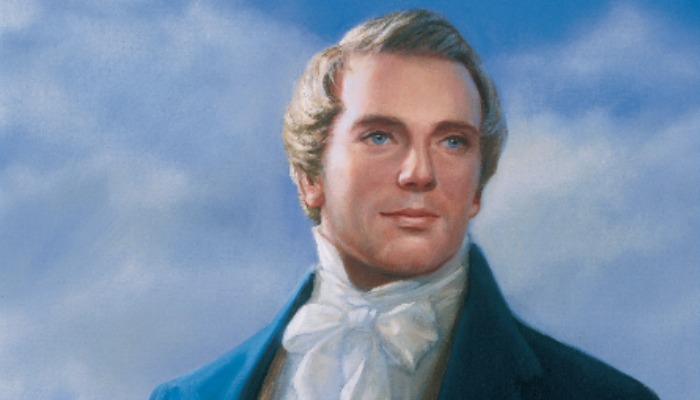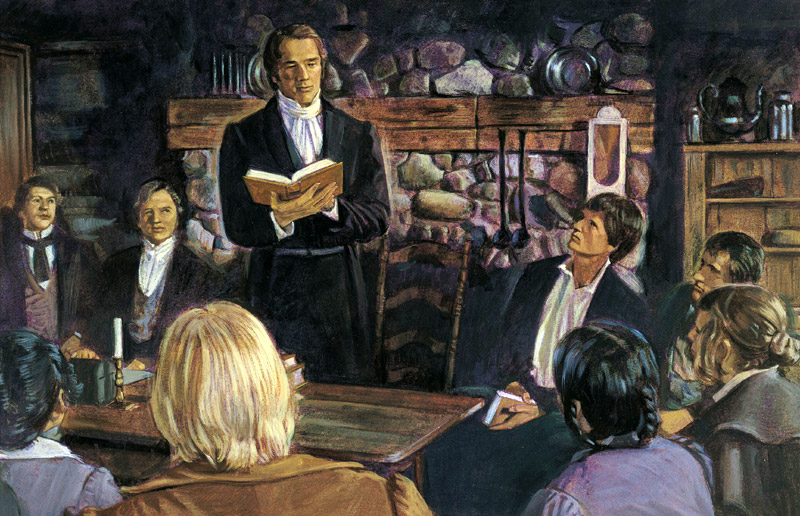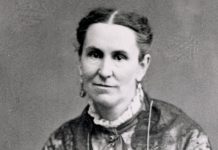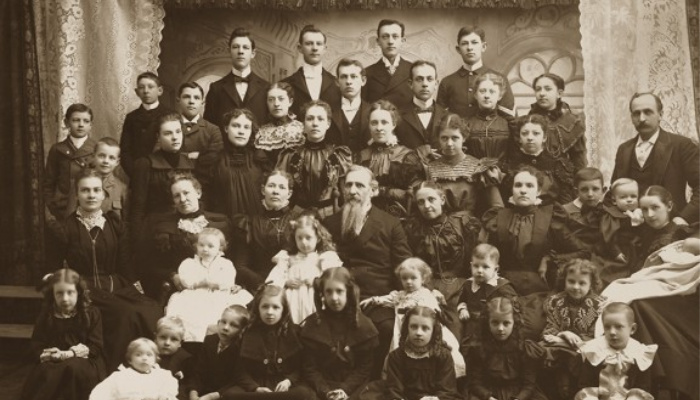
Polygamy: The word nobody likes talking about, but also the controversial subject from the history of the Church that there’s really no getting around. Each member has to find their own way to come to terms with it. Maybe the most frustrating question is: Why? Why did God command Joseph Smith to institute a practice that is so repugnant to our moral sensibilities?
As I’ve tried to expand my own understanding of our history I’ve come to one conclusion. I don’t fully understand why polygamy had to happen, but I do know that Joseph Smith wasn’t just trying to sleep around. I’m sorry if that sounds crude, but really, that’s what it comes down to for most people, isn’t it? Either polygamy was a commandment from God, or Joseph Smith was abusing his authority to satisfy his own desires.
The latter is the initial reaction for many non-believers. Even for many members, it’s the concern hiding underneath their questions about polygamy. I’m not much bothered by that allegation anymore, and you’re about to read why that is. One could conceivably shrug off any one of the following evidences, but when considered together, they provide a strong case for Joseph’s sincerity.
Joseph’s eternity-only sealings
Some of Joseph Smith’s first plural wives (about a dozen) were curiously already married to other men. This, of course, led to the rumor that Joseph Smith was a wife-stealing menace. But here’s what we know: The sealing power allows us to marry for time and all eternity. But in Joseph’s time, the idea of “sealing power” was new. As the early Church struggled to understand eternal marriage, Joseph had wives sealed to him in different ways. Some were for “time-only,” some were for “eternity-only,” and some were for time and all eternity.
Eternity-only marriages only were to take effect after death. As far as we can tell, each of the women Joseph sealed to him that already had their own husbands were “eternity-only” marriages. As such, each of these women still lived with their respective husbands, and there is no evidence to suggest that Joseph was intimately involved with any of them.
If Joseph was just looking to sleep around, these sexless “eternity-only” marriages make little sense.
Joseph Smith’s brother
I was recently listening to a podcast featuring Dr. Valerie Hudson, who is a professor at Texas A & M, among many other things (she’s incredible). She mentioned,
…one of Joseph Smith’s brothers … appeared eager to practice polygamy, and so his brother, Joseph, forbade him from practicing polygamy, which I thought was really interesting. So those men who were not pure-hearted enough to see it as a test, but rather as a perk, were not allowed to practice it.
It seemed that Joseph understood how polygamy would look to the outside world and went to great lengths to protect the women involved from any men that may have had less-than-holy motives.
Asking others to practice it
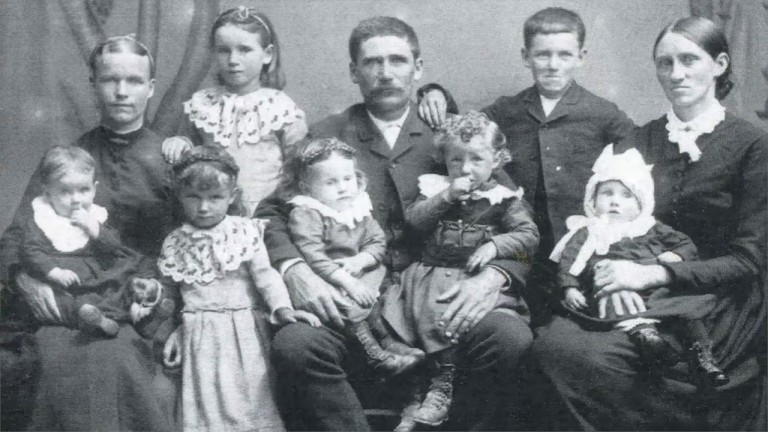
One of Joseph’s wives, Helen Mar Kimball, said,
If Joseph had had any impure desires he could have gratified them in the style of the world with less danger of his life or his character, than to do as he did. The Lord commanded him to teach & to practice that principle.
If Joseph’s motivation was lust, why would he have asked other men to live polygamy at all? He could have easily lied, “this is the burden of the prophet alone.” It might still be risky, but much less risky than asking others to incorporate polygamy into their lives. And if he only wanted others to live polygamously to deflect attention from his own shenanigans, you’d think he would have taught the principle to those who would have been most eager to accept it. But he doesn’t. He teaches it to respectable, moral men, who struggled with the principle immensely.
The Book of Mormon condemns it
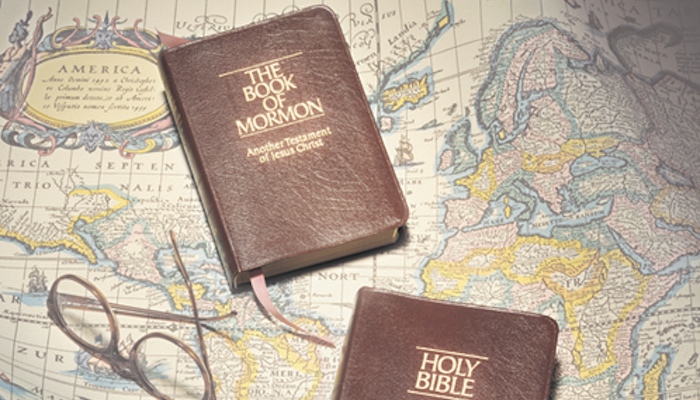
Let’s assume for a moment that Joseph Smith was indeed a fraud. If his goal really was to satisfy sexual desire, why, in his fraudulent book, The Book of Mormon, would he specifically condemn polygamy? Jacob 2:27-28 is very clear,
Wherefore, my brethren, hear me, and hearken to the word of the Lord: For there shall not any man among you have save it be one wife; and concubines he shall have none; For I, the Lord God, delight in the chastity of women. And whoredoms are an abomination before me; thus saith the Lord of Hosts.
It doesn’t seem like a great strategy. At the very least, he could have just said nothing about polygamy in The Book of Mormon, but he doesn’t. The book condemns it.
The critic may cite the caveat in Jacob 2:30,
For if I will, saith the Lord of Hosts, raise up seed unto me, I will command my people; otherwise they shall hearken unto these things.
The skeptic might assume that Joseph was just feigning piety, while plotting from the beginning to exploit this “convenient” loophole. Then again, to date, evidence suggests Joseph did not father any children with his plural wives. So if his plan was to take advantage of the child-bearing caveat … fail.
Again, if adultery was his goal, this doesn’t make any sense.
John C. Bennett
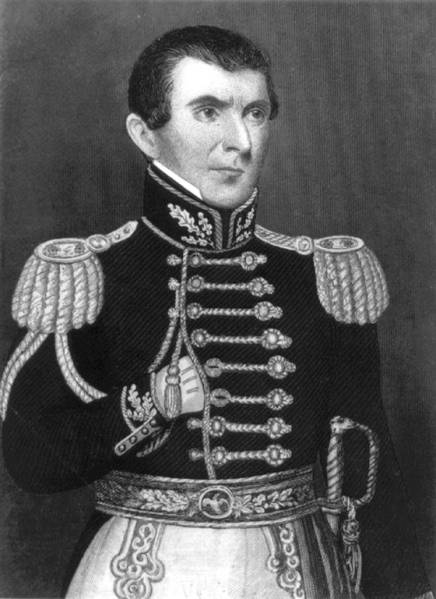 You might recognize John C. Bennett as one of the early Church’s most destructive enemies. But that wasn’t always the case. At one point he was a member himself and mayor of Nauvoo. Soon, it came to Joseph’s attention that John was deceiving and seducing women in Nauvoo.
You might recognize John C. Bennett as one of the early Church’s most destructive enemies. But that wasn’t always the case. At one point he was a member himself and mayor of Nauvoo. Soon, it came to Joseph’s attention that John was deceiving and seducing women in Nauvoo.
If Joseph had been after the same thing John was after, he would have made the perfect accomplice. Instead, Joseph excommunicates John C. Bennett for his actions. The rest is history.
Quotes from Joseph’s wives and friends
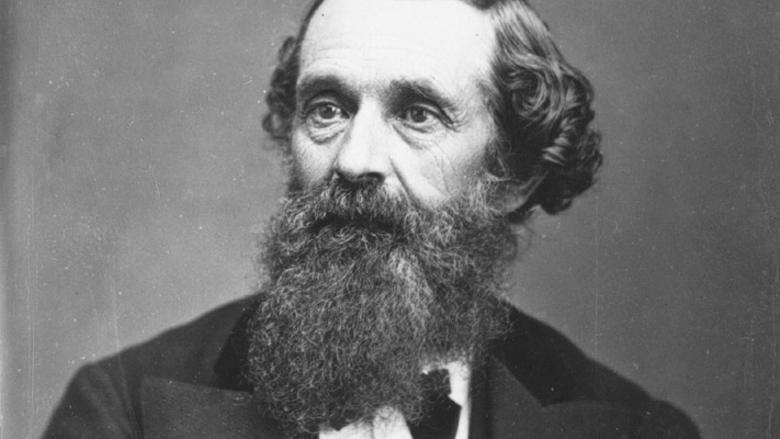
Unfortunately, there is very little first-hand documentation of Joseph’s own thoughts on polygamy. The next-best option is to defer to those closest to him. Namely, his wives and friends. All of the quotes in this section come from the excellent work Brian and Laura Hales have done on their website, josephsmithspolygamy.org:
Again quoting Helen Mar Kimball: “Had it not been for the fear of His displeasure, Joseph would have shrunk from the undertaking and would have continued silent, as he did for years, until an angel of the Lord threatened to slay him if he did not reveal and establish this celestial principle.”
Helen also mentioned that “Joseph put off the dreaded day as long as he dared.”
Another wife, Lucy Walker, said that Joseph “had his doubts about [plural marriage] for he debated it in his own mind.”
Eliza R. Snow wrote that her husband, Joseph, was “afraid to promulgate [plural marriage].”
Lorenzo Snow (the future president of the Church and brother of Eliza R. Snow), said that Joseph “hesitated and deferred from time to time.” He added that Joseph “foresaw the trouble that would follow and sought to turn away from the commandment.”
Quotes from non-Latter-day Saints
One historian, Ernst Benz (a non-member), said the following:
Mormon polygamy has nothing to do with sexual debauchery but is tied to a strict patriarchal system of family order and demonstrates in the relationship of the husband to his individual wives all the ethical traits of a Christian, monogamous marriage. It is completely focused on bearing children and rearing them in the bosom of the family and the Mormon community. Actually, it exhibits a very great measure of selflessness, a willingness to sacrifice, and a sense of duty.
A man named George Bernard Shaw, who also was not a member of the Church, remarked,
Now nothing can be more idle, nothing more frivolous, than to imagine that this polygamy had anything to do with personal licentiousness. If Joseph Smith had proposed to the Latter-day Saints that they should live licentious lives, they would have rushed on him and probably anticipated their pious neighbors who presently shot him.
Quotes from modern Latter-day Saint polygamy experts

Historian and author B. Carmon Hardy said,
Joseph displayed an astonishingly principled commitment to the doctrine [of plural marriage]. He had to overcome opposition from his brother Hyrum and the reluctance of some of his disciples. Reflecting years later on the conflicts and dangers brought by plural marriage, some church leaders were struck with the courage Joseph displayed in persisting with it. And when one recalls a poignant encounter like that between [counselor in the First Presidency] William Law and Joseph in early 1844, it is difficult not to agree. Law, putting his arms around the prophet’s neck, tearfully pleaded that he throw the entire business of plurality over. Joseph, also crying, replied that he could not, that God had commanded it, and he had no choice but to obey.
Author Richard Van Wagoner wrote in his book, Mormon Polygamy: A History,
Contrary to popular nineteenth-century notions about polygamy, the Mormon harem, dominated by lascivious males with hyperactive libidos, did not exist. The image of unlimited lust was largely the creation of travelers to Salt Lake City more interested in titillating audiences back home than in accurately portraying plural marriage. Newspaper representatives and public figures visited the city in droves seeking headlines for their eastern audiences. Mormon plural marriage … proved to be a rather drab lifestyle compared to the imaginative tales of polygamy, dripping with sensationalism, demanded by a scandal-hungry eastern media market.
After reading Joseph Smith’s personal journals, scholar Paul Peterson commented on Joseph’s character,
I had not fully grasped certain aspects of the Prophet’s psyche and personality. After just a few pages into Personal Writings, it became clear that Joseph possessed religious dimensions that I had not understood. For one thing, it was apparent I had underestimated the depth of his dependence upon Deity. The Joseph that emerges in Personal Writings is an intensely devout and God-fearing young man who at times seems almost helpless without divine support. And his sincerity about his prophetic calling is also apparent. If others were not persuaded of his claims, it could not be said that Joseph was unconvinced that God had both called and directed him. Detractors who claim that Joseph came to like the game of playing prophet would be discomfited if they read Personal Writings. Scholars may quibble with how true his theology is, but for anyone who reads Personal Writings, his earnestness and honesty are no longer debatable points.
I don’t know why polygamy had to happen…
There are a great many things that I don’t understand about polygamy. I find the practice disturbing, confusing, and simply unfair to both genders, especially women. But I also believe that simply attributing the early practice of plural marriage to a charismatic leader with an insatiable sexual appetite is evidence of disingenuous and lazy scholarship. So, on my list of reasons why polygamy may have happened, I’m happy to cross this one off.
Additional sources and information:
Much of the information and quotes found in this article are derivative of FairMormon.com.
For more information on polygamy, check out Brian and Laura Hales’ masterpiece, JosephSmithsPolygamy.org.


